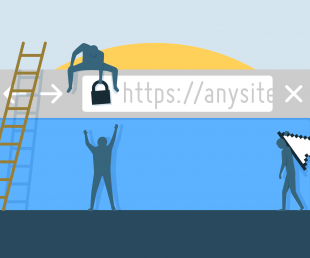Over just the past 10 years, mobile apps have changed our lives, making nearly everything more convenient. With the push of a button, we can:
- Order food, flowers, or concert tickets
- Play solitaire or search for your perfect holiday recipe while waiting for the bus
- Pay bills and upload resumes during lunch
- Watch a newly released movie during our morning commute
Yet not many of us are simplifying our finances with mobile banking. Why? Perhaps even the term, itself, confuses people.
What is digital banking anyway?
Digital banking encompasses mobile and online banking solutions, as well as ATMs. While people often use these terms interchangeably, they are not the same thing. The difference is whether you use a browser or an app. If you use an app provided by the bank, it’s mobile. If you use a browser, even if it’s on your phone, it’s online. Glad that’s sorted.
Which type of banking is better? In person or digital?
It’s not quite as simple as that. Each experiences offers something different. An app can’t give you banking advice, so sometimes nothing beats talking to someone and getting that professional guidance one-on-one. That said, nothing can beat the convenience of online banking in your own living room or mobile banking while getting some fresh air.
Advantages of traditional, online and mobile banking
Would you rather talk to someone to ask a question or get advice? Call your banker or bank customer service. Do you need to withdraw money? Find your closest ATM.
Almost everything else can be done online or on your mobile device. Would you rather sit in front of a large monitor or laptop screen? Log on to your bank’s website. You will be able to do almost all transactions you want, except remote check deposits.
If you’re comfortable using your smartphone, most banking apps can take care of pretty much everything:
- Account information access – check!
- Mobile deposits – check!
- Paying bills – check!
- Transfer funds – check!
- Locating an ATM – check!
- Set up alerts – check!
- Activate cards – check!
What do people use mobile banking for?
A whopping 94 percent of consumers just use their mobile banking app to check a balance or recent transactions, while only 48 percent use it for remote deposits. That’s a huge gap between “passive” and “active” modes of mobile banking.
So why don’t you use mobile banking (or use it more)?
Fraud Concerns: Some believe that a smartphone is more susceptible to fraud than online banking, but this notion is not supported by security experts. That’s not to say your mobile device can’t get compromised by malicious malware or phishing attacks, or simply fall into the wrong hands. It can, but there are ways to reduce the risk:
- Don’t do your banking on public Wi-Fi, only on a secure network
- Use more complex passwords and don’t use the same one across several apps
- Auto-lock your device, so when you set it down, it locks quickly
- Only download apps from a reputable app store
- Update your apps and delete the ones you aren’t using
User Experience: You want your app to be not only secure, but snappy. In today’s fast-paced environment, unnecessary or redundant clicks can be annoying, and deter you from what’s supposed to be an easy and enjoyable experience.
First-time user? Here’s what to look for in a mobile banking app
- Your mobile banking app should be offered to customers at no charge
- The app should be regularly updated
- The mobile deposit limits should work for your banking routine
- The app should be supported by your phone and its current OS
- The app should offer a high level of customization (alerts, bill pay, etc.)
Online banking adds the convenience of banking from your own home, but mobile apps also have advantages. If you’ve never tried a mobile banking app, or if you tried it once and quit using it because of its clunkiness at the time, give it another go. You might find that your bank’s app provides you with everything you need: control, security, convenience and a user-friendly interface.



